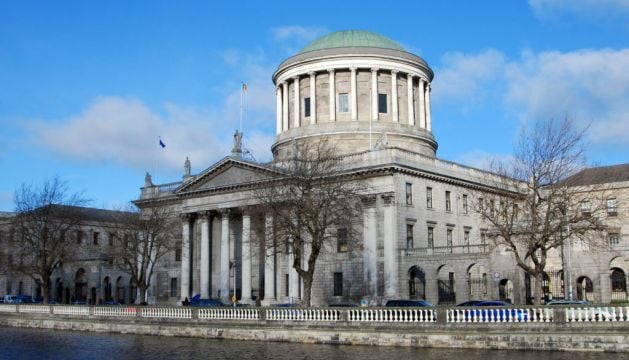A High Court action brought by the son of the notorious INLA leader Dominic McGlinchey seeking documents in relation to his father's murder is likely to be resolved, a court heard on Monday.
Dominic 'Óg' McGlinchey had brought proceedings against the coroner for Co Louth Mr Ronan McGuire over an alleged failure to furnish documents and files relating to the applicant's father's 1996 inquest that had been preserved by the coroner.
Republican paramilitary Dominic McGlinchey Snr was shot dead when making a call from a phone box in Drogheda on February 10th, 1994, a year after he had been released from prison.
His murder remains unsolved. The jury at the November 1996 inquest returned a verdict in accordance with the medical evidence, that McGlinchey Snr died because of bullet wounds to his head.
Following the inquest, the McGlinchey family requested a Garda investigation into the killing and claimed that two members of the loyalist terror group the Ulster Volunteer Force (UVF) were responsible.
Earlier this year, the applicant's solicitor Mr Ciaran Mulholland wrote to the coroner requesting to be provided with documents and material that were before the inquest.
It is understood that the material is sought so the family can assess what reviews of the murder investigation have been undertaken by gardaí.
Some of the material sought by Mr McGlinchey includes depositions to the inquest from the late State Pathologist Dr John Harbison, who carried out post-mortem examination on the applicant's father.
Other requests were records of the verdict and depositions given by the applicant who was aged 16 years at the time of the killing, and depositions of a garda who attended to the scene of the 1994 shooting.
The requests for the material in question were not answered, it was claimed.
Preservation of documents
Mr McGlinchey had claimed that under the 1962 Coroner's Act, Mr McGuire has a duty to permanently preserve certain documents relating to an inquest.
In addition, it is claimed that the coroner has a duty under the 1962 Act to furnish these documents after a person such as Mr McGlinchey Jnr has applied for them.
The action was initiated last April after Mr McGlinchey's claimed his repeated requests to the coroner to be provided with the material were not answered.
When the case was briefly mentioned before Mr Justice Charles Meenan at the High Court on Monday, Ronan Munroe SC for Mr McGlinchey said that the coroner has indicated in correspondence that he will provide the applicant with all the material he has in his possession.
"This hopefully, may resolve the matter," counsel said.
However, it was not known at this stage how much of the material sought by his client is in the possession of the coroner, the court also heard.
Mr Justice Meenan said that given the coroner's position he was not prepared to grant the applicant permission to bring the judicial review challenge.
The judge said he was prepared to put the coroner on notice of the application and adjourned the proceedings to a date in July.
Arising out the alleged failure to provide the material sought, Mr McGlinchey, with an address in Tuam, Co Galway, had brought proceedings against Mr Mcguire.
In his judicial review action, the applicant had sought various reliefs including declarations from the court that the coroner had failed to comply with a statutory obligation to furnish the relevant documents, and that there had been a failure to give any reasons for the alleged failure to comply.

Mr McGlinchey had also sought orders directing the coroner to comply with his obligations and furnish the applicant with the relevant records, or to provide reasons why the material had not been provided.
In the mid-1980s, McGlinchey Snr became the chief of staff of the Irish National Liberation Army (INLA), a group that splintered from the Provisional IRA in the 1970s, after he fell out with the IRA.
The Co Derry native was nicknamed 'Mad Dog'.
Neither McGlinchey's murder nor that of his late wife Mary, who was shot dead in her Dundalk home in January 1987 as she bathed the couple's children, have ever been solved.







